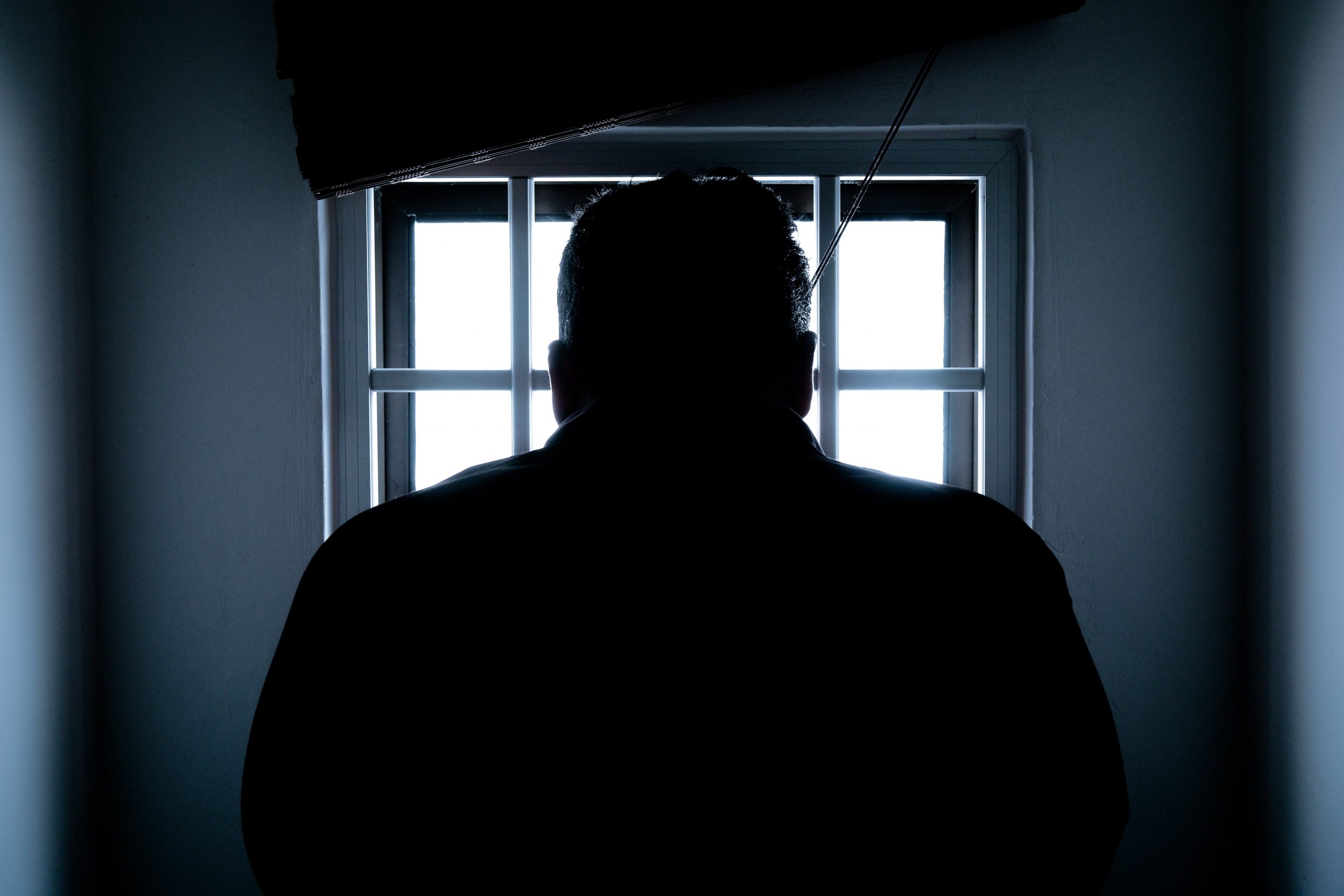Are you a business owner considering leasing a commercial space in Utah? Understanding your tenant rights and landlord responsibilities is crucial for a successful and stress-free lease agreement. In this article, we will delve into the key points of Utah’s commercial lease laws, ensuring that you are well-informed and prepared to navigate any potential challenges that may arise. From rent payment regulations to maintenance obligations, we will cover it all, empowering you to protect your business interests. Whether you are a new entrepreneur or an experienced business owner, knowing your rights and responsibilities is essential. So, read on for a comprehensive guide that will leave you equipped with the knowledge you need to make informed decisions and, if necessary, to reach out to a commercial real estate lawyer like Jeremy Eveland for further consultation.

Tenant Rights
As a tenant, you have certain rights that protect you and ensure a fair and safe living environment. Understanding these rights is crucial to maintaining a positive landlord-tenant relationship. Here are some key tenant rights you should be aware of:
Right to a Written Lease Agreement
One of your most important rights as a tenant is the right to a written lease agreement. A lease agreement is a legally binding document that outlines the terms and conditions of your tenancy. It is essential to have a written lease agreement to protect your rights and ensure both parties understand their obligations.
Right to a Habitable Premises
As a tenant, you have the right to live in a habitable premises. This means that your landlord is responsible for ensuring that the property meets basic health and safety standards. Your landlord should provide essential utilities and services, address maintenance and safety issues promptly, and maintain a clean and safe living environment.
Right to Privacy and Quiet Enjoyment
As a tenant, you have the right to privacy and quiet enjoyment of your rental property. This means that your landlord cannot enter your premises without your consent, except in certain specific circumstances. Your landlord should respect your privacy and not interfere with your use and enjoyment of the property.
Right to Reasonable Notice of Entry
Your landlord must provide you with reasonable notice before entering your rental property. The notice period may vary depending on the circumstances, but in general, your landlord should give you at least 24 hours’ notice, unless it is an emergency situation. This right ensures that you have the opportunity to prepare for the entry and make necessary arrangements.
Right to Request Repairs
As a tenant, you have the right to request repairs from your landlord. If there are maintenance or safety issues in your rental property, you should promptly notify your landlord and request the necessary repairs. Your landlord has a duty to make these repairs promptly and ensure that the premises remain in a habitable condition throughout your tenancy.
Right to Withhold Rent for Repairs
In some cases, if your landlord fails to make necessary repairs within a reasonable time frame, you may have the right to withhold rent until the repairs are made. However, it is important to follow the proper procedure when withholding rent and to document all communication with your landlord regarding the repairs. This right ensures that you have leverage to ensure your landlord fulfills their responsibilities.
Right to Dispute Unfair Charges
If you believe that your landlord has charged you unfair fees or expenses, you have the right to dispute these charges. Review the charges and expenses carefully and determine their validity. If you believe they are unjust, you can negotiate with your landlord or engage in alternative dispute resolution methods to resolve the issue. In some cases, seeking legal assistance may be necessary to protect your rights effectively.
Right to Protection Against Retaliation
Your landlord is prohibited from retaliating against you for exercising your tenant rights. If you assert your rights or make reasonable complaints, your landlord cannot evict you, raise your rent, or engage in any other retaliatory actions. If you believe you are facing retaliation, it is essential to gather evidence and seek legal assistance to protect your rights.
Right to a Return of Security Deposit
When your tenancy ends, you have the right to the return of your security deposit, minus any lawful deductions. Your landlord must provide you with an itemized list of deductions, if any, and return the remaining deposit within a specified time frame. This right ensures that you are not unfairly deprived of your security deposit funds.
Right to Terminate the Lease
In certain circumstances, you have the right to terminate your lease before its expiration date. For example, if your landlord fails to maintain habitable conditions or violates your rights in a significant way, you may have grounds to terminate the lease. Understanding the lease termination procedures and seeking legal assistance, if needed, is crucial in exercising this right appropriately.
Landlord Responsibilities
While tenants have specific rights, landlords also have corresponding responsibilities to ensure a fair and harmonious landlord-tenant relationship. Here are some key responsibilities that landlords must fulfill:
Responsibility to Provide a Written Lease Agreement
Just as tenants have the right to a written lease agreement, landlords have a responsibility to provide one. The lease agreement should outline the terms and conditions of the tenancy, including rent, lease duration, and any rules or regulations. Providing a written lease agreement ensures clarity and protects both parties’ interests.
Responsibility to Maintain a Habitable Premises
Landlords have a duty to maintain habitable premises for their tenants. This includes providing essential utilities, ensuring safety and cleanliness, and addressing maintenance issues promptly. Landlords should conduct regular maintenance checks and respond to tenant concerns in a timely manner to ensure the property remains habitable throughout the tenancy.
Responsibility to Respect Privacy and Quiet Enjoyment
Just as tenants have the right to privacy and quiet enjoyment, landlords have a responsibility to respect these rights. They should not enter the premises without proper notice and consent, except in certain specific circumstances, such as emergencies or necessary repairs. Respecting tenant privacy fosters a positive living environment for both parties.
Responsibility to Provide Reasonable Notice of Entry
Landlords must provide their tenants with reasonable notice before entering the rental property. The notice period may vary depending on the circumstances but should generally be at least 24 hours, unless it is an emergency. This responsibility allows tenants to prepare for the entry and ensures that they have time to make any necessary arrangements.
Responsibility to Make Necessary Repairs
Landlords are responsible for making necessary repairs to the rental property. When tenants report maintenance or safety issues, landlords should address them promptly. Failure to make necessary repairs can lead to further damage, safety hazards, and potential legal action from tenants. Being proactive in addressing repair requests is essential for responsible property management.
Responsibility to Address Tenant Complaints
Landlords have a responsibility to address tenant complaints and concerns promptly. When tenants raise issues about maintenance, safety, or other matters, landlords should take them seriously and take appropriate action. Clear and open communication is key to resolving tenant complaints effectively and maintaining a positive landlord-tenant relationship.
Responsibility to Handle Security Deposits Properly
When tenants provide a security deposit, landlords must handle these funds properly. This includes placing the deposit in a separate account, providing an itemized list of deductions, if any, and returning the remaining deposit within the specified time frame. Handling security deposits properly ensures transparency and protects tenant rights.
Responsibility to Prevent Retaliation
Landlords are prohibited from retaliating against tenants for exercising their rights or making reasonable complaints. Retaliation can take various forms, such as eviction, rent increases, or harassing behavior. Landlords must respect tenant rights and refrain from any retaliatory actions, ensuring a fair and respectful landlord-tenant relationship.
Responsibility to Refund Security Deposit
At the end of the tenancy, landlords are responsible for refunding the tenant’s security deposit, minus any lawful deductions. They must provide tenants with an itemized list of deductions, if applicable, and return the remaining deposit within the specified time frame. Properly refunding security deposits is crucial to maintaining trust and fulfilling landlord responsibilities.
Responsibility to Follow Lease Termination Procedures
Landlords have a responsibility to follow the appropriate lease termination procedures. This includes understanding the options for terminating the lease, providing notice to tenants, and adhering to any legal or contractual requirements. Improper termination can lead to legal repercussions and strain the landlord-tenant relationship. Seeking legal assistance can help landlords navigate the termination process effectively.
Right to a Written Lease Agreement
When entering into a commercial lease agreement, having a written lease agreement is of utmost importance. This document serves as the foundation of your business relationship with the landlord and outlines the rights and responsibilities of both parties. Here are key considerations regarding the right to a written lease agreement:
Importance of a Written Lease Agreement
A written lease agreement provides clarity and protection for both the tenant and the landlord. It clearly outlines the terms and conditions of the commercial lease, including rent, lease duration, renewal options, and any additional provisions or restrictions. Having a written lease agreement minimizes misunderstandings and disputes down the road.
Key Elements of a Commercial Lease Agreement
A commercial lease agreement should include essential elements such as the names and addresses of both the tenant and the landlord, a clear description of the rented premises, the lease term, and the rent payment details. It should also address any specific considerations relevant to the business, such as zoning restrictions or signage rights.
Understanding the Terms and Conditions
Before signing a commercial lease agreement, it is crucial to carefully read and understand all the terms and conditions. Pay close attention to clauses related to rent escalation, maintenance responsibilities, renewal options, and early termination clauses. Seek legal assistance if needed to ensure that the terms are fair and favorable to your business.
Ensuring All Necessary Provisions Are Included
Customizing your lease agreement to fit your specific business needs is essential. Consider including provisions related to parking, signage rights, maintenance responsibilities, and any specific additional requirements or restrictions specific to your business. Ensure that all necessary provisions are clearly outlined in the lease agreement.
Seeking Legal Assistance for Reviewing the Agreement
Commercial lease agreements can be complex, and seeking legal assistance is highly recommended. A commercial real estate lawyer can review the lease agreement, explain any legal jargon or complex provisions, and ensure that your rights and interests are protected. Their expertise can help you negotiate favorable terms and avoid potential pitfalls.
Right to a Habitable Premises
When leasing a commercial space, the right to a habitable premises is crucial for the success of your business. A habitable premises refers to a space that meets basic health and safety standards and allows your business to operate safely and efficiently. Here’s what you need to know about this important tenant right:
Landlord’s Duty to Maintain Habitability
Commercial landlords have a legal duty to maintain habitable premises for their tenants. This duty includes providing essential utilities, ensuring the premises are free from safety hazards, and making necessary repairs. If your business requires specific conditions or amenities, such as reliable plumbing or adequate HVAC systems, it is essential to clarify these expectations before signing the lease agreement.
Ensuring Essential Utilities and Services
As a tenant, you have the right to expect essential utilities and services in your commercial space. These may include water, electricity, heating, cooling, and sanitation systems. Before signing the lease agreement, verify that the space has the required utility connections and necessary services for your business operations. Address any concerns or discrepancies with the landlord.
Addressing Safety and Maintenance Issues
If safety or maintenance issues arise during your tenancy, it is crucial to report them promptly to your landlord. This includes concerns about electrical wiring, plumbing leaks, pest infestations, or structural damage. Your landlord has a legal obligation to address these issues and ensure the premises remain safe and well-maintained.
Seeking Legal Remedy for Habitability Concerns
If your landlord fails to address habitability concerns despite adequate notice, you may have legal options to remedy the situation. Consult with a commercial real estate lawyer to understand your rights and determine the best course of action. Legal remedies may include rent withholding, lease termination, or initiating a legal action against the landlord.
Options for Lease Termination in Extreme Cases
In extreme cases where the commercial space becomes uninhabitable or unsuitable for your business operations, you may have the right to terminate the lease. This could be due to severe structural damage, environmental hazards, or significant disruptions to essential services. Consult with a commercial real estate lawyer to understand the legal requirements and procedures for lease termination in such cases.
Right to Privacy and Quiet Enjoyment
Privacy and quiet enjoyment are essential rights tenants should have in their rental property. As a tenant in a commercial space, you must understand and assert these rights to ensure a conducive environment for your business. Here’s everything you need to know about your right to privacy and quiet enjoyment:
Tenant’s Right to Privacy
As a tenant, you have the right to privacy within your commercial space. This means that your landlord cannot enter your premises without your consent, except in certain specific situations. Your commercial space should be free from unnecessary intrusion or interference that could compromise the confidentiality of your business operations.
Limitations on Landlord’s Access to the Premises
Although landlords have some access rights, they must respect the limits imposed by law and the lease agreement. Generally, landlords can enter the premises for specific reasons such as repairs, inspections, or emergencies. However, they must provide reasonable notice and obtain your consent whenever possible.
Dealing with Intrusive Landlord Behavior
If you believe your landlord is intruding on your right to privacy and quiet enjoyment, it is essential to address the issue promptly. Communicate your concerns to your landlord in writing and request that they respect your privacy rights. If the issue persists, consult with a commercial real estate lawyer to explore your legal options or potential remedies.
Legal Recourse for Invasion of Privacy
If your landlord continues to invade your privacy despite your objections, you may have legal recourse. Invasion of privacy can have severe consequences for your business, including theft of confidential information or compromised customer trust. Consult with a commercial real estate lawyer to understand the legal remedies available to you in such situations.
Obtaining Proper Evidence for Privacy Violations
To strengthen your case when asserting privacy violations, it is crucial to gather proper evidence. Keep a record of incidents, including dates, times, and descriptions of intrusion or interference. Take photographs or videos if necessary, and preserve any relevant documents or communication related to the issue. This evidence will help support your claims if legal action becomes necessary.
Right to Reasonable Notice of Entry
As a tenant in a commercial space, you have the right to reasonable notice before your landlord enters the premises. This ensures that you have the opportunity to prepare for the entry, maintain confidentiality, and protect your business operations. Here is what you need to know about this important tenant right:
Landlord’s Requirement to Provide Notice
Your landlord is required to provide you with reasonable notice before entering your commercial space. The notice period may vary depending on the circumstances, but it is generally expected to be at least 24 hours unless in emergency situations. The precise notice requirement may be outlined in your lease agreement or governed by local laws.
Acceptable Reasons for Entering the Premises
Your landlord may enter the premises for specific reasons such as repairs, inspections, or emergencies. These reasons must be acceptable and within the limits set by law and the lease agreement. Non-emergency entry should be scheduled at a mutually agreed-upon time to minimize disruption to your business operations.
Concerns Regarding Entry Without Notice
If your landlord enters your commercial premises without proper notice or without a legitimate reason, it is essential to address the issue promptly. Communicate your concerns in writing, referencing the relevant lease provisions or local laws that support your position. Maintain a record of these incidents and seek legal assistance if the issue persists.
Legal Actions Against Unauthorized Entry
Unauthorized entry by your landlord is a serious violation of your rights as a tenant. If your landlord continuously enters the premises without notice or consent, you may be entitled to legal remedies. Consult with a commercial real estate lawyer to understand your options for legal action and protect your privacy and business operations effectively.
Documenting Instances of Unauthorized Entry
To strengthen your case when addressing unauthorized entry, it is crucial to document instances of such occurrences. Keep a record of dates, times, and descriptions of the unauthorized entries. Take photographs or videos whenever possible, and preserve any relevant documents, such as letters or emails, that prove your landlord’s unauthorized activity. This documentation will support your claims if legal action becomes necessary.

Right to Request Repairs
As a tenant in a commercial space, you have the right to request repairs from your landlord. It is essential to promptly report any maintenance or safety issues to ensure the proper maintenance of your commercial space. Here is what you need to know about your right to request repairs:
Tenant’s Responsibility to Report Repairs
It is your responsibility as the tenant to report any necessary repairs to your landlord. Promptly communicate any maintenance or safety concerns in writing, and retain a copy of the correspondence for your records. Clearly describe the issue and provide any supporting evidence, such as photographs, if applicable.
Landlord’s Duty to Make Necessary Repairs
Upon receiving a request for repairs, your landlord has a legal duty to address the reported issues promptly. The specific time frame may depend on the nature of the problem and local laws. However, landlords are generally expected to make repairs within a reasonable time period to ensure the habitability and functionality of the commercial space.
Establishing a Reasonable Timeframe for Repairs
While the definition of a “reasonable” timeframe may vary, it is essential to establish expectations regarding repair completion with your landlord. Request a specific timeframe in writing and keep a record of the agreed-upon timeline. This helps ensure that repairs are made within a reasonable timeframe and prevents unnecessary delays.
Legal Actions for Unresolved Repair Requests
If your landlord fails to make necessary repairs within a reasonable timeframe, legal actions may be necessary to protect your rights. Consult with a commercial real estate lawyer to understand your options for legal remedies, such as rent withholding, repair and deduct, or lease termination. Taking prompt action is crucial to address unresolved repair requests effectively.
Documenting Communication Regarding Repairs
To strengthen your position regarding repair requests, it is essential to document all communication with your landlord regarding repairs. Keep copies of your repair requests, including dates and descriptions of the reported issues. Maintain records of any written or verbal responses from your landlord and any other relevant documentation. This documentation will serve as evidence if legal action becomes necessary.
Right to Withhold Rent for Repairs
Under certain circumstances, if your landlord fails to make necessary repairs within a reasonable time frame, you may have the right to withhold rent until the repairs are made. However, it is essential to follow the proper procedure when withholding rent and maintain clear documentation. Here’s what you need to know about your right to withhold rent for repairs:
Conditions for Withholding Rent
Withholding rent should only be considered as a last resort when other avenues for resolving repair issues have been exhausted. Generally, the conditions for withholding rent require that the repairs are necessary for habitability, that you have provided your landlord with proper notice, and that a reasonable amount of time has passed for the repairs to be made.
Proper Procedure for Notifying the Landlord
Before withholding rent, you must provide your landlord with written notice of the necessary repairs. Clearly describe the issues and the timeframe within which the repairs should be completed. Be sure to retain a copy of the notice, as this will serve as essential documentation should disputes arise later.
Escalating the Situation if Repairs Are Not Made
If your landlord fails to make the necessary repairs within the specified timeframe after receiving proper notice, you may need to escalate the situation. Consult with a commercial real estate lawyer to understand your options for legal remedies, such as repair and deduct, rent withholding, or lease termination. Taking prompt and appropriate action is essential to protect your rights.
Legal Actions to Protect Tenant Rights
While withholding rent can be a legally justifiable action, it is crucial to understand your rights and the potential consequences. Consult with a commercial real estate lawyer to ensure that you follow the proper legal procedures and protect your rights effectively. Legal assistance can help you navigate the complexities of rent withholding and resolve repair issues in a fair manner.
Managing Rent Payments During Repair Disputes
While withholding rent may be an option during a repair dispute, it is essential to manage your rent payments carefully. Set aside funds for rent in a separate account to show your good faith and willingness to pay once the repairs are made. Consult with a commercial real estate lawyer regarding the proper procedure for managing rent payment during a repair dispute.

Right to Dispute Unfair Charges
If you believe that your landlord has charged you unfair fees or expenses, you have the right to dispute these charges. It is essential to review the charges carefully, determine their validity, and take appropriate action to protect your rights. Here’s what you need to know about your right to dispute unfair charges:
Reviewing Charges and Expenses
Thoroughly review any charges or expenses your landlord has billed you. Pay close attention to the lease agreement and any other relevant documents to ensure the charges are justified. If you have questions or concerns about the charges, request a detailed explanation from your landlord.
Determining the Validity of Charges
Assess the validity of the charges against the terms and conditions outlined in the lease agreement. Check if the charges are authorized by the lease agreement or allowed under local laws. If you believe that the charges are unjust or excessive, consult with a commercial real estate lawyer to understand your rights and explore potential remedies.
Negotiating with the Landlord
If you disagree with the charges, communicate your concerns to your landlord in writing. Provide a clear explanation of why you believe the charges are unfair or improper. Attempt to negotiate a resolution with your landlord, seeking a reduction or elimination of the disputed charges.
Engaging in Alternative Dispute Resolution
If direct negotiation with the landlord does not resolve the dispute, consider alternative dispute resolution methods. Mediation or arbitration can be effective in resolving conflicts without resorting to litigation. Consult with a commercial real estate lawyer to explore these options and determine the best course of action for your specific situation.
Seeking Legal Assistance for Resolving Disputes
If you are unable to reach a resolution through direct negotiation or alternative dispute resolution, seeking legal assistance may be necessary. Consult with a commercial real estate lawyer who specializes in tenant rights to understand your legal options and protect your interests effectively. Legal representation can be critical in resolving disputes and ensuring a fair outcome.
Responsibility to Follow Lease Termination Procedures
Landlords have a responsibility to follow the appropriate lease termination procedures. Terminating a lease can have significant legal and financial implications, so it is crucial for landlords to understand their obligations and adhere to the established procedures. Here’s what landlords need to know about their responsibility in lease termination:
Understanding Lease Termination Options
To terminate a lease, landlords must understand the various termination options available to them. Common options include termination at the end of the lease term, termination with proper notice, and termination for cause, such as a breach of lease agreement by the tenant. Familiarize yourself with the specific termination options allowed by your lease agreement and local laws.
Procedures for Terminating the Lease
Each lease agreement may have specific procedures for terminating the lease. It is essential to review the terms of the lease agreement and follow the outlined procedures precisely. This may involve providing written notice to the tenant within a specified timeframe, adhering to any notice requirements, or obtaining proper documentation.
Notifying Tenants of Lease Termination
Provide tenants with written notice of lease termination in accordance with the terms of the lease agreement and local laws. Clearly communicate the effective date of termination and any relevant details or requirements. Ensure that you have documented proof of delivering the notice to the tenant.
Consequences of Improper Termination
Improper termination of a lease can have legal consequences for landlords, including potential liability for damages or breach of contract claims. If you fail to follow the proper lease termination procedures, the tenant may challenge the termination and continue their tenancy. Consult with a commercial real estate lawyer to understand the legal ramifications and protect yourself from potential disputes.
Legal Assistance in the Termination Process
Navigating the lease termination process can be complex, and seeking legal assistance is highly recommended. A commercial real estate lawyer can provide guidance on the proper procedures, help you understand your rights and obligations, and ensure compliance with lease agreement terms and local laws. Legal representation can help you avoid potential pitfalls and protect your interests throughout the termination process.
In conclusion, understanding tenant rights and landlord responsibilities is essential for maintaining a fair and mutually beneficial landlord-tenant relationship. Tenants have rights such as the right to a written lease agreement, a habitable premises, privacy and quiet enjoyment, reasonable notice of entry, request repairs, withhold rent for repairs, dispute unfair charges, protection against retaliation, a return of the security deposit, and the right to terminate the lease. Landlords have corresponding responsibilities, including providing a written lease agreement, maintaining a habitable premises, respecting privacy and quiet enjoyment, providing reasonable notice of entry, making necessary repairs, addressing tenant complaints, handling security deposits properly, preventing retaliation, refunding security deposit, and following lease termination procedures. Understanding these rights and responsibilities helps ensure a positive and harmonious relationship between landlords and tenants. If you have any questions or concerns regarding tenant rights or landlord responsibilities, consult with a commercial real estate lawyer for expert advice and guidance.













